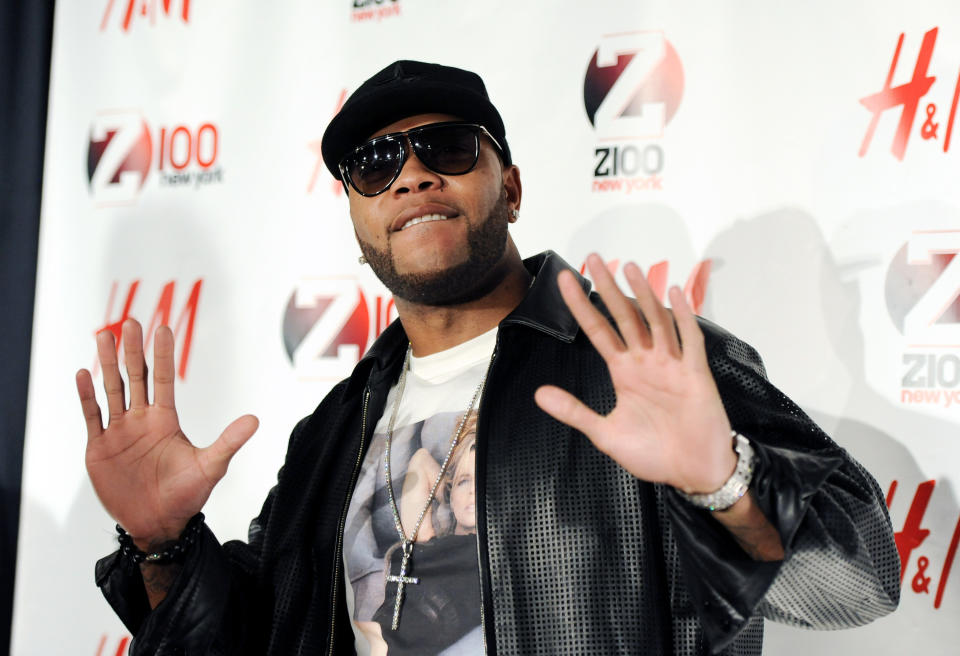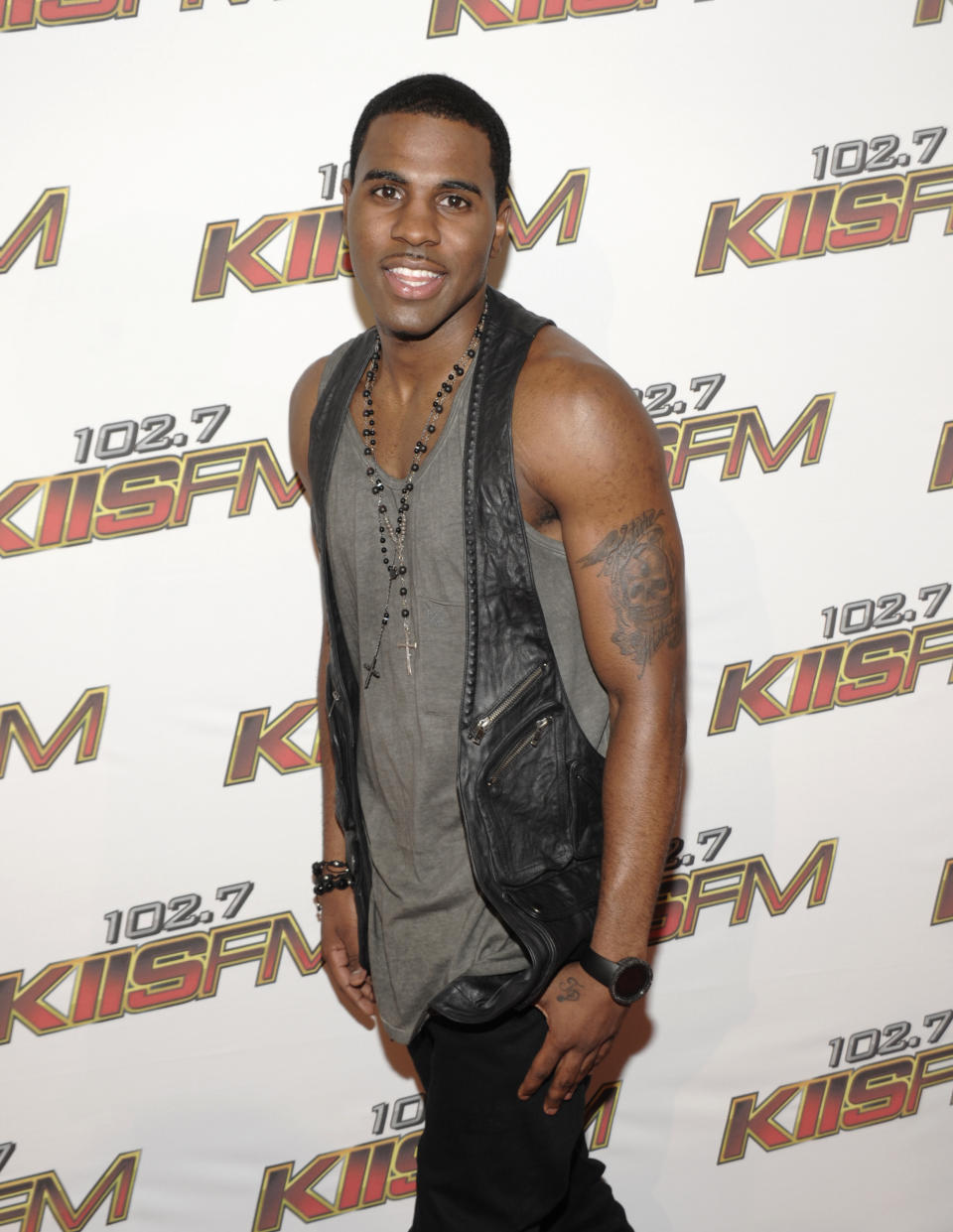Trapped: Many artists selling singles, not albums
NEW YORK (AP) — Just before Flo Rida released his third album, almost two million fans purchased the first single "Club Can't Handle Me," helping the rapper snag yet another Top 10 hit.
But in its first week out, only 11,000 people bought the 8-song EP — "Only One Flo Part 1" — making its debut measly at No. 107 on the Billboard charts. And in nearly two years, the album has only sold 62,000 units, according to Nielsen SoundScan.
Flo Rida's experience in 2010 is being repeated again and again in today's pop scene. He's just one of many acts who suffer from an imbalance: They have a multitude of hits, but anemic album sales.
Years ago, a hit song was usually accompanied by a gold or platinum album, and multiple hits meant multiplatinum albums. But times have changed.
"If you used to have a big single, you would sell a million albums, and if you sell a million albums and you're a band, you can probably not have to work for a couple years. We don't have that luxury," said Cobra Starship's lead singer Gabe Saporta.
Cobra Starship had a top 10 hit with the double platinum dance jam "You Make Me Feel ...," but their latest album debuted at No. 50 and has sold a mere 33,000 units. Gym Class Heroes, which had a top 5 hit with the triple-platinum "Stereo Hearts" and success with its follow-up "(Expletive) Back Home," saw its fourth album, "The Papercut Chronicles II," debut at No. 54 on Billboard's Top 200 albums chart, spending just one week on the list. Its lead singer, Travie McCoy, had a similar issue with his 2010 solo debut "Lazarus": While the single "Billionaire," featuring Bruno Mars, sold more than three million tracks, the album only moved 74,000 units.
Ne-Yo, the Grammy-winning hitmaker who has written smashes for the likes of Beyonce and Rihanna, blames the phenomenon on a lack of personality and originality from the artists.
"I feel like it falls on the shoulders of not only the record label, but the artists themselves. I feel like the thing that makes you go out and get a person's whole album is you liking that artist, you connecting with that artist," said Ne-Yo, who recently became the senior vice president of A&R for Universal Motown Records.
"I feel like a lot of people are saying that the industry is moving to just being singles driven, and that's kind of a cop out to me. So it's like, basically that means that we sign a bunch of disposal artists, you know, as long as we get one hit that's good? That's B.S.," continued Ne-Yo.
Ne-Yo added that today's music executives should be "taking the time and spending the money that it takes to make sure that you're building icons, not fly-by-night, add water-and-stir artists."
Jason Derulo had three multiplatinum hits from his 2010 self-titled debut — including the No. 1 smash "Whatcha Say" — but the album has only sold 315,000 units, according to Nielsen SoundScan. Things didn't get better when Derulo released his sophomore album last September: "Future History" has sold just 64,000 so far.
Still, Derulo feels his second album helped dispel the notion that he falls into the category Ne-Yo described.
"When my songs came out and they were huge successes. ... No. 1 songs all over the world, and I was just like, 'Whoa. Wait a minute. We need these songs, but who is Jason Derulo?' So I feel like on this album we'll really get a chance to know who I am rather than going through songs, songs, songs," Derulo said.
Other performers who have suffered in album sales, but have hit singles, include Pitbull, Enrique Iglesias, Taio Cruz, Jay Sean, Sean Kingston, Mike Posner and Far East Movement.
Tom Corson, the COO and president of RCA Records — the label home of Pitbull and Posner — says that just because an artist doesn't sell a lot of albums doesn't make the act a failure. He said record companies determine an album's success by an artist's TEA, which stands for track-equivalent-albums.
"You have certain artists that sell 300,000 albums, but sell 10 million tracks. That's the equivalent of 1.3 million albums," he explained.
Corson says Pitbull is a great example of an act who defies the "singles artist" stereotype: While his latest albums, last year's "Planet Pit" and 2009's "Rebelution," have sold 397,000 and 249,000 units, respectively, his singles from those albums — "Give Me Everything" and "I Know You Want Me (Calle Ocho)," among others — have moved more than 15 million tracks. He also sold out Madison Square Garden with Iglesias last year and has endorsements with Bud Light, Kodak and Dr. Pepper.
Others, though, have managed to find success in both lanes, even when early projections didn't show promise.
Lady Gaga's 4.4 million-selling 2008 debut, "The Fame," wasn't an instant smash, but she released back-to-back hits while connecting with a core fan base — her "monsters" — and showed off much of her personality with her outrageous fashion choices and award show performances. Even Bruno Mars saw his debut "Doo-Wops and Hooligans" move 55,000 in its first week, despite having three monster smashes ahead of the CD's release. But he continued to churn out even more hit singles for himself and others. Now, Mars' album has sold more than 1.6 million copies, according to Nielsen SoundScan.
LMFAO, too, has had a similar breakthrough: When their massive tune, the now six-times platinum "Party Rock Anthem," hit the No. 1 spot this summer, their sophomore album "Sorry for Party Rocking" only moved 27,100 in its first week. But they managed another multiplatinum No. 1 hit — and pop culture moment — with "Sexy and I Know It," and fans have connected more with the wild, party-boy vibe of the duo. Now the album has sold more than 800,000 units and peaked at No. 5.
"It's always the whole world for us, and it was always a long-term thing," said Redfoo of LMFAO.
Adds Sky Blu of their winning formula: "It's a lifestyle. We're inspiring people to party."
This summer, Flo Rida will release his fourth album, which features the triple platinum "Good Feeling" and "Wild Ones," another platinum top 10 hit. Despite weak album sales, Corson says the rapper has a formula that works.
"There's a reason why Flo Rida keeps putting out records, 'cause it's good business," he said.
___
Mesfin Fekadu covers entertainment for The Associated Press. Follow him at http://www.twitter.com/musicmesfin





